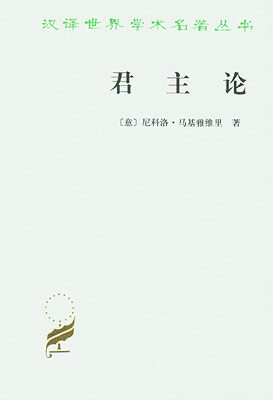君主论-the prince(英文版)-第13章
按键盘上方向键 ← 或 → 可快速上下翻页,按键盘上的 Enter 键可回到本书目录页,按键盘上方向键 ↑ 可回到本页顶部!
————未阅读完?加入书签已便下次继续阅读!
een enlarged or maintained。But the scanty wisdom of man; on entering into an affair which lookswell at first; cannot discern the poison that is hidden in it; as I havesaid above of hectic fevers。 Therefore; if he who rules a principalitycannot recognize evils until they are upon him; he is not truly wise;and this insight is given to few。 And if the first disaster to the RomanEmpire should be examined; it will be found to have menced only withthe enlisting of the Goths; because from that time the vigour of theRoman Empire began to decline; and all that valour which had raised itpassed away to others。I conclude; therefore; that no principality is secure without having itsown forces; on the contrary; it is entirely dependent on good fortune;not having the valour which in adversity would defend it。 And it hasalways been the opinion and judgment of wise men that nothing can be souncertain or unstable as fame or power not founded on its own strength。And one's own forces are those which are posed either of subjects;citizens; or dependants; all others are mercenaries or auxiliaries。 Andthe way to take ready one's own forces will be easily found if the rulessuggested by me shall be reflected upon; and if one will consider howPhilip; the father of Alexander the Great; and many republics andprinces have armed and organized themselves; to which rules I entirelymit myself。CHAPTER XIVTHAT WHICH CONCERNS A PRINCE ON THE SUBJECT OF THE ART OF WARA PRINCE ought to have no other aim or thought; nor select anything elsefor his study; than war and its rules and discipline; for this is thesole art that belongs to him who rules; and it is of such force that itnot only upholds those who are born princes; but it often enables men torise from a private station to that rank。 And; on the contrary; it isseen that when princes have thought more of ease than of arms they havelost their states。 And the first cause of your losing it is to neglectthis art; and what enables you to acquire a state is to be master of theart。 Francesco Sforza; through being martial; from a private personbecame Duke of Milan; and the sons; through avoiding the hardships andtroubles of arms; from dukes became private persons。 For among otherevils which being unarmed brings you; it causes you to be despised; andthis is one of those ignominies against which a prince ought to guardhimself; as is shown later on。 Because there is nothing proportionatebetween the armed and the unarmed; and it is not reasonable that he whois armed should yield obedience willingly to him who is unarmed; or thatthe unarmed man should be secure among armed servants。 Because; therebeing in the one disdain and in the other suspicion; it is not possiblefor them to work well together。 And therefore a prince who does notunderstand the art of war; over and above the other misfortunes alreadymentioned; cannot be respected by his soldiers; nor can he rely on them。He ought never; therefore; to have out of his thoughts this subject ofwar; and in peace he should addict himself more to its exercise than inwar; this he can do in two ways; the one by action; the other by study。As regards action; he ought above all things to keep his men wellorganized and drilled; to follow incessantly the chase; by which heaccustoms his body to hardships; and learns something of the nature oflocalities; and gets to find out how the mountains rise; how the valleysopen out; how the plains lie; and to understand the nature of rivers andmarshes; and in all this to take the greatest care。 Which knowledge isuseful in two ways。 Firstly; he learns to know his country; and isbetter able to undertake its defence; afterwards; by means of theknowledge and observation of that locality; he understands with ease anyother which it may be necessary for him to study hereafter; because thehills; valleys; and plains; and rivers and marshes that are; forinstance; in Tuscany; have a certain resemblance to those of othercountries; so that with a knowledge of the aspect of one country one caneasily arrive at a knowledge of others。 And the prince that lacks thisskill lacks the essential which it is desirable that a captain shouldpossess; for it teaches him to surprise his enemy; to select quarters;to lead armies; to array the battle; to besiege towns to advantage。Philopoemen; Prince of the Achaeans; among other praises which writershave bestowed on him; is mended because in time of peace he never hadanything in his mind but the rules of war; and when he was in thecountry with friends; he often stopped and reasoned with them: 〃If theenemy should be upon that hill; and we should find ourselves here withour army; with whom would be the advantage? How should one best advanceto meet him; keeping the ranks? If we should wish to retreat; how oughtwe to set about it? If they should retreat; how ought we to pursue?〃 Andhe would set forth to them; as he went; all the chances that couldbefall an army; he would listen to their opinion and state his;confirming it with reasons; so that by these continual discussions therecould never arise; in time of war; any unexpected circumstances that hecould deal with。But to exercise the intellect the prince should read histories; andstudy there the actions of illustrious men; to see how they have borhemselves in war; to examine the causes of their victories and defeat;so as to avoid the latter and imitate the former; and above all do as anillustrious man did; who took as an exemplar one who had been praisedand famous before him; and whose achievements and deeds he always keptin his mind; as it is said Alexander the Great imitated Achilles; CaesarAlexander; Scipio Cyrus。 And whoever reads the life of Cyrus; written byXenophon; will recognize afterwards in the life of Scipio how thatimitation was his glory; and how in chastity; affability; humanity; andliberality Scipio conformed to those things which have been written ofCyrus by Xenophon。 A wise prince ought to observe some such rules; andnever in peaceful times stand idle; but increase his resources withindustry in such a way that they may be available to him in adversity;so that if fortune changes it may find him prepared to resist her blows。CHAPTER XVCONCERNING THINGS FOR WHICH MEN; AND ESPECIALLY PRINCES; ARE PRAISED ORBLAMEDIT REMAINS now to see what ought to be the rules of conduct for a princetowards subject and friends。 And as I know that many have written onthis point; I expect I shall be considered presumptuous in mentioning itagain; especially as in discussing it I shall depart from the methods ofother people。 But; it being my intention to write a thing which shall beuseful to him who apprehends it; it appears to me more appropriate tofollow up the real truth of a matter than the imagination of it; formany have pictured republics and principalities which in fact have neverbeen known or seen; because how one lives is so far distant from how oneought to live; that he who neglects what is done for what ought to bedone; sooner effects his ruin than his preservation; for a man whowishes to act entirely up to his professions of virtue soon meets withwhat destroys him among so much that is evil。Hence it is necessary for a prince wishing to hold his own to know howto do wrong; and to make






